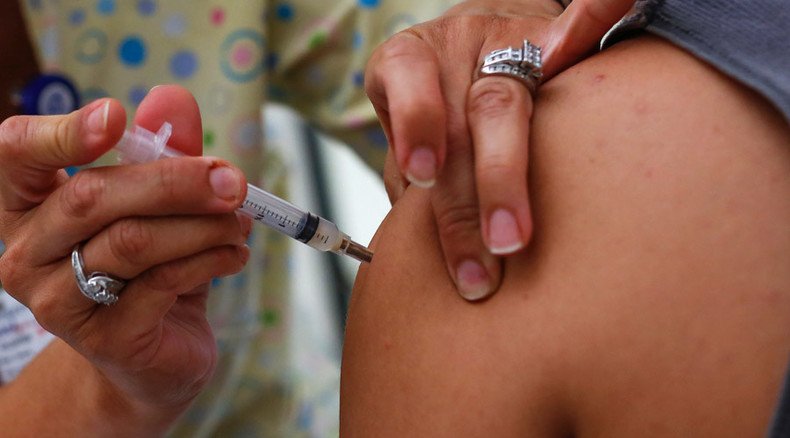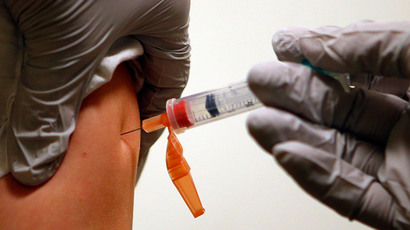Anti-vaccine parents to stop receiving childcare benefits under Australian 'no jab, no pay' law

Parents who don't immunize their kids will stop receiving childcare benefits next year in Australia. Only people with solid medical reasons will be exempt from the crackdown.
The new "no jab, no pay" rules are expected to save more than AUS$500 million (US$350 million) over four years.
The changes take effect on January 1, 2016 after legislation passed the Senate on Monday, with the backing of Labor, the Greens and crossbench senators.
According to the Department of Health, the percentage of children under seven years old with a conscientious objection recorded on the Australian Childhood Immunization Register (ACIR) rose from 0.23 per cent in December 1999 to 1.77 per cent in December 2014.
The government believes that removing non-medical exemptions will “reinforce the importance of immunisation and protecting public health” and that “the choice made by families not to immunise their children is not supported by public policy or medical research nor should such action be supported by taxpayers in the form of child care payments.”
Speaking in support of the measures, Liberal Democrats Senator David Leyonhjelm said childless families should not have to subsidize the lifestyles of those who choose to have "little blighters," AP reported.
He went as far as to suggest that most welfare payments for parents should actually be abolished.
"The government is not your parent or your spouse - get over it," Senator Leyonhjelm noted.
He added that while politicians were "obsessed" with families, many Australian households were childless.
In fact, couples without children are expected to overtake couples with children in 2020, according to the Australian Bureau of Statistics.
Senator Leyonhjelm rushed to thank childless Australians for not having children.
"You work for more years and become more productive than the rest of Australia. You pay thousands and thousands of dollars more tax than other Australians. You get next to no welfare,” he noted.
“But you pay when other people get pregnant, you pay when they give birth, you pay when they stay at home to look after their offspring," he said, according to the Sydney Morning Herald.
The Senator added that forcing those who want to have children but can't to subsidize those with children was like making people in wheelchairs “pay for other people's running shoes."
Labor said the Department of Human Services needed to conduct an intensive review of how the scheme was working, with particular focus on the 7 percent of parents who don't vaccinate their children but are not registered as conscientious objectors.
Registered conscientious objectors represent a minority of the total number of children not up-to-date with their vaccination schedules—around 20% of all children aged one, two or five who are not fully immunized. For children up to five years of age, immunization rates range from around 90 to 92% (depending on the age group), according to the Department of Health.
Independent Senator Nick Xenophon said negative effects of vaccination were rare but possible, calling for a Canadian-style scheme that compensates those affected.
Government frontbencher Mitch Fifield said that parents wishing to dispute a report that they had not vaccinated their child would have a minimum of two weeks to provide documentary evidence before payments were affected.














